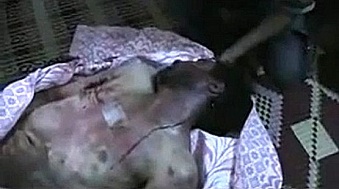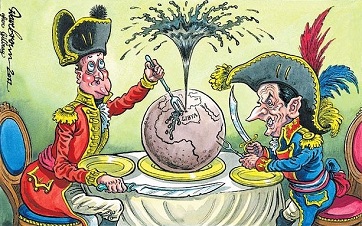The Syrian crisis
Boris Dolgov

The Syrian crisis is being actively affected from abroad. Various reports confirm that there is a plan aimed to divide Syria into several parts, with some areas annexed to Turkey, the Golan Heights going to Israel, and probably separate Kurdish and Druze territorial entities…
Anti-government protests in Syria have added more fuel to the fire of the Arab Spring.The unrest broke out in March, 2011, in the city of Daraa on the Israel-Jordan border, and soon spread to other districts, turning into clashes with the army.
On Match 29th tens of thousands of people took to the streets of Aleppo, Latakia, Homs and Hama to express their support to President Bashar Assad. However, the anti-government protests continued, mainly in areas bordering Jordan, Lebanon and Turkey, and grew even tenser. The bloodiest incidents took place in Jisral-Shughour with the population of 50,000, on the Turkish border: then some 120 police and army officers were killed. Some 10,000 residents of Jisral-Shughour fled their homes toward the Turkish border, fearing bloodshed as troops with tanks approached, under orders to hit back after the government accused armed bands there of killing its security men. Some of the refugees, however, returned home soon afterward.
As a member of the Russian delegation visiting Syria on 20-24 August, I could see the photos of the service men killed in Jisral-Shughour – many of the bodies were quartered and burnt. Witnesses said a group of armed men attacked cars 100 km outside Damascus, pulled out drivers and passengers and started beating them if the cars were decorated with Assad`s portraits or any other symbols of his regime.



























